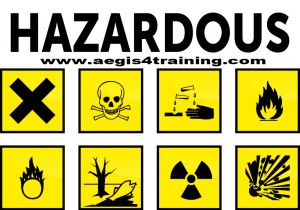Control of Substances Hazardous to Health (CoSHH) rules
As a typical law obligation of consideration on managers to secure representatives and individuals, General Health and Safety Legislation cover all businesses and working environments. Must be knowledgeable of the following rules and laws, and must be able to put in action their obligations:
- Control of Substances Hazardous to Health Regulations (COSHH) 2002 is a set of regulations applied to exercises including the utilization of Hazardous Substances.
- Substances risky to wellbeing are characterized under COSHH as those that seem to be: ‘Exceptionally Toxic, Toxic, Corrosive, Harmful or Irritant.’ They incorporate all substances assigned a Workplace Exposure Limit (WEL) in EH40, considerable amounts of dust and certain organic specialists associated with work.
- Control of Substances Hazardous to Health (Amendment) Regulations 2004 is a set of refurbishments to the 2002 regulations happened on 6 April 2005. The corrections give another spotlight on great practice and help employers meet their obligations under COSHH enactment.
- A definitive obligation regarding consistence with the Regulations rests with the business, (Board for RFH and Council for UCL). Chiefs from both foundations are relegated particular obligations as nitty gritty underneath.
For certain airborne harmful chemicals, it might be conceivable to organize observations. Such checks are a lawful necessity if the exposure of the individuals in the working environment is possible. In case you think this might apply to your work environment, you ought to contact the Safety Office.
Directors who control work with dangerous chemicals or miniaturized scale life forms have an obligation to guarantee that the greater part of the particular necessities recorded underneath in this archive are followed (where they apply to their territories of work):
- To do assessments of the perils of the utilization of harmful chemicals in the workplace
- To implement control measures to avoid exposure to unsafe substances.
- To guarantee that control measures are legitimately kept up, inspected and tried at the proper interims.
- To educate the Occupational Health Department about workers who might require observations.
- To give data, guideline, preparations and supervision in connection to work with dangerous substances
- To guarantee that a man does not work with unsafe substances alone unless preparing has demonstrated they are able to do as such.
- To guarantee that any individual defensive gear provided is suitable to the individual and the employment, and is appropriately utilized and kept up.
- To be arranged for any conceivable crises including the dangerous substances in their general vicinity
- To enroll with the HSE first time use and committal of certain organic chemicals utilized for research facilities.
For more information visit our website:Â http://aegis4training.com/


